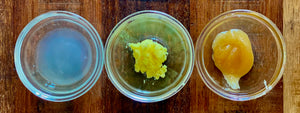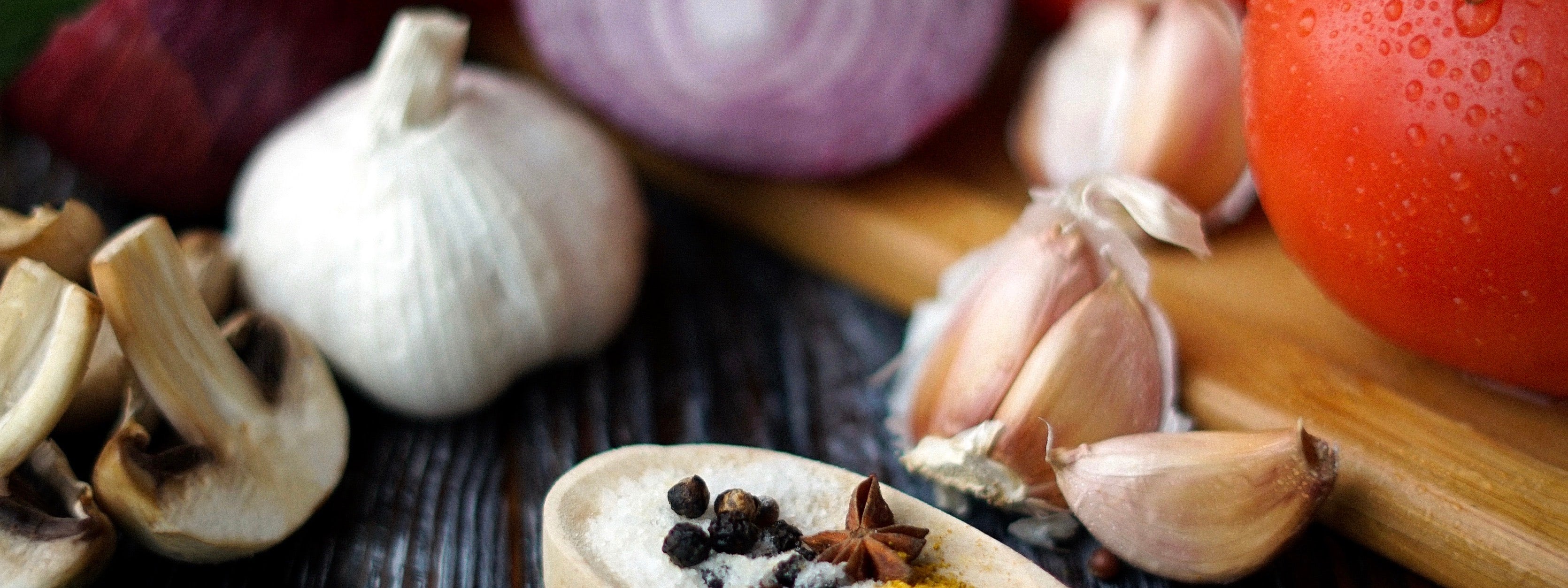
I’m sure you’re as concerned as I am about COVID-19 and the impact it will have on yourself and your loved ones. Currently there is no proven cure for COVID-19. While you may feel helpless, one of the things you can do is take good care of your health. Here are a few things you can do to support yourself and others during this time:
MEDICAL DISCLAIMER: This is NOT medical advice. Please consult your healthcare practitioner for individualized medical advice.

Diets that are high in nutrients and low in sugar and processed foods have shown to benefit the immune system. Aim to eat foods from every color of the rainbow each day. This will help assure you are getting enough vitamins and minerals.
Protein is needed to make antibodies and other cells that fight infections. Focus on healthy proteins such as wild-caught salmon, organic meats and eggs. Including fermented foods such as kimchi, sauerkraut, yogurt and miso increase friendly bacteria and can help prevent bad bacteria from replicating in your body. Avoid processed foods like cookies and chips as they cause inflammation in the gut where the majority of your immune system lies (1). Consuming processed or simple sugar can lower immunity for several hours after ingestion. Also, be sure to drink plenty of filtered water to flush out toxins and keep your system moving.
Without adequate sleep, your body won’t make enough cytokines (proteins that target infections) leaving you susceptible to the common cold and flu. Keep your immune system up by getting at least 7 to 8 hours of sleep each night (1). You can read about ways to cultivate healthy sleep habits here.
Exercise may help to push microbes out of your lungs and airways or prevent them from entering your lungs in the first place (2). It also gets your heart rate up and increases blood flow throughout your entire body including your brain. Not only will you feel energized afterward but It will lift your spirits helping you to think more clearly, make better decisions and stay positive. I recommend exercising for 20 minutes a day even if it’s just a brisk walk around the block.
Stress reduces our body’s ability to recognize and fight antigens and microbes (3). During these times, it’s imperative that we all find ways to manage or eliminate stress. Meditate, go for a walk in nature, watch a funny movie, talk with friends over zoom. I also recommend limiting the number of times you check the NEWS and social media a day. Being aware is a good thing but always being tuned in is not good for the nervous system.
Humans are social creatures and the majority of us need to feel a sense of acceptance and belonging. One study found that, "Poor quality and low quantity of social ties have also been associated with inflammatory biomarkers and impaired immune function." So, while it's important to practice social distancing right now, it's even more important to stay connected. Make it a priority to reach out to loved ones, reconnect with old friends and make new friends online over shared interests.
While not necessarily immune boosting, social distancing is definitely preventative. Practice social distancing by staying 6 feet apart from people when you leave the house. Here is a good article that explains why outbreaks like coronavirus spread so quickly and why social distancing can flatten the curve.
According to the CDC, washing your hands correctly is a proven preventative measures against infections. Wash your hands for at least 20 seconds using friction with soap and water. After washing your hands use a moisturizer to prevent your hands from becoming dry and cracked. You can read about the importance of keeping your hands clean and moisturized here. Also, avoid touching your face or eating with your fingers. If you do touch your face wash it as soon as you can. Be sure to use a neti pot or nasal rinse to rinse microbes out of your sinus cavity.

Photo by Anastasia Dulgier
Taking targeted supplements may strengthen your immune system.
Vitamin A enhances adaptive immunity and boosts the innate immune system against multiple infectious diseases (4). Some foods that are high in vitamin A include liver, cod liver oil, sweet potatoes, carrots, spinach and broccoli.
Vitamin D is a fat-soluble hormone that is made in the skin from exposure to sunlight (5). This article lists many references on how Vitamin D might work in the prevention and treatment of respiratory tract infections and its effects on the immune system. Some foods high in vitamin D include salmon, sardines, cod liver oil, tuna and egg yolks.
A 2018 meta-analysis found, “the combination of supplemental and therapeutic doses of vitamin C is capable of relieving chest pain, fever, and chills, as well as shortening the time of confinement indoors and mean duration" (6). Some foods containing vitamin C include cherries, guavas, citrus fruits, bell peppers, kale, kiwi, broccoli, Brussel sprouts, persimmons, papayas and strawberries.
Unless you’re eating oysters every day you should supplement with zinc for its immune-boosting properties. It can improve antiviral response and systemic immunity as well as inhibit viral replication and the accompanying symptoms (7). Taking zinc picolinate at the first sign of symptoms may shorten the duration of infection as it helps the body fight infections. Foods high in zinc include red meat, shellfish. You can also get a moderate amount from dairy, eggs, legumes, nuts, seeds and fortified whole grains.
About 70% of your immune system resides in the gut (8, 9). Bacteria, good or bad, communicate with our human cells. This is why keeping a healthy balance of bacteria in your gastrointestinal tract will help with the health of your entire body including the respiratory system. Studies found supplementing with probiotics may help in the prevention, treatment and recovery of respiratory infections (10). Fermented foods like yogurt, sauerkraut, kimchi, kombucha and kefir contain probiotics that support your immune system.
Mushrooms are high in glucan, a polysaccharide that has shown to enhance the immune response against influenza (11). Some like Reishi and Cordyceps have been used for thousands of years in China to promote health and longevity (12). Look for chaga, cordyceps, maitake, reishi, shiitake and turkey tail (13).
Echinacea is a common herb used in the prevention and treatment of infections. It may reduce the frequency and severity of viral respiratory infections as well as shorten the duration by up to 1.4 days (14, 15).
Known to prevent, treat and shorten the duration of cold & flu symptoms by as much as 4 days (16, 17). Typically taken in lozenge, syrup or tea form. However, there is some debate in the medical community on whether elderberry should be used for COVID-19 symptoms. A study found elderberry syrup to increase the production of some cytokines. For this reason, I would NOT recommend elderberry syrup for COVID-19 related symptoms until further studies have been conducted.

Photo by Aliona Gumeniuk
In addition to the above, you can use common kitchen ingredients to support your immune system. All of them can easily be found at your local grocery store and incorporated in simple recipes.
Allicin, the compound in garlic that is activated when crushed, can boost the immune system and prevent cold or flu viruses (18). To activate garlic’s health benefits, chop or mash it up and let it sit for 15 minutes. Then you could add it to anything including butter or olive oil and use it as a spread or dip.
An ancient remedy used to treat a wide variety of conditions, fresh ginger has anti-viral properties and benefits the respiratory system (19). You can make a tea by chopping up a one-inch piece, add it to boiling water, let simmer for 10 minutes. You could also juice it or finely grate it, add the juice of one lemon and a teaspoon of raw honey and eat throughout the day.
Like ginger, turmeric is highly anti-inflammatory and anti-microbial. Curcumin, the active compound has shown to reduce lung inflammation and boost the immune response to influenza A (20). It’s used as a spice in many cuisines as well as a warming milky beverage to treat inflammation.
Raw honey has many health benefits including being a potent inhibitor of the influenza virus (21). It is antimicrobial and is used to treat coughs and sore throat. Manuka honey is the best but if you don’t have access to it use raw local honey. Spread it over toast or add it to warm water with lemon juice.
A staple in many Asian cuisines, shiitake mushrooms are another one of nature’s antiviral foods. Consuming them every day can help boost your immune system (22). I stir-fry fresh mushrooms with other veggies or add the dried ones to soup. Click here to view my simple immune-boosting recipe made with shiitake, kale and green onions.
Onions are a prebiotic, meaning they feed the healthy probiotics in your gut. They are also high in quercetin, a flavonoid that has shown to inhibit the replication of rhinovirus, the virus responsible for the common cold (23). Add them to just about every savory dish you cook right now for immune-boosting benefits.

Photo by Igor Miske
Below is a list of Chinese herbs used in Chinese hospitals right now for the prevention and treatment of early-stage coronavirus symptoms. You can purchase them online through my shop.
This is a popular prevention formula that has been used in Asia for 800 years. It contains astragalus, atractylodes rhizome and siler root. It helps to protect your body from airborne pathogens (24). Jade Windscreen was used during the SARS outbreak of 2003 to boost immunity (25).
This is a common formula used for the treatment of early-stage symptoms such as fever, cough, sore throat. Lonicera and forsythias are strong antiviral herbs and the combination was also used during the SARS outbreak to treat symptoms (26, 27).
An adaptogen that is used in Tibet to help the body adapt to changes in altitude and protect the lungs from hypoxia (28). In Chinese medicine, it is believed to strengthen the lungs and digestive system as well as promote energy.
Isatis root is a superstar herb used in China for it's antiviral and antibacterial properties (29). It is used to treat epidemic infections, early-stage colds, influenza, sore throats and mumps (30).
Cordyceps protect the lungs of the cilia from damage and helps to modulate cytokine response (31). The fungus has been used in China as a treatment for respiratory, circulatory, reproductive and immune functions for nearly 1500 years. It is an adaptogen that promotes overall wellbeing (32).
Studies demonstrated that Chinese skullcap can be effective against influenza and cold-causing viruses by preventing them from replicating (33). It is used in Chinese medicine to treat digestive problems, upper respiratory tract infections, coughs with thick mucus, blood disorders, high blood pressure, headaches and irritability.
Andrographis is an herb used in Chinese Medicine to treat fevers stemming from viral and bacterial infections (34). It is believed to reduce inflammation and boost the immune system due to the compound, Andrographolides. (35). It is also used to treat sore throat, infections in the GI tract as well as and clear phlegm from the lungs.